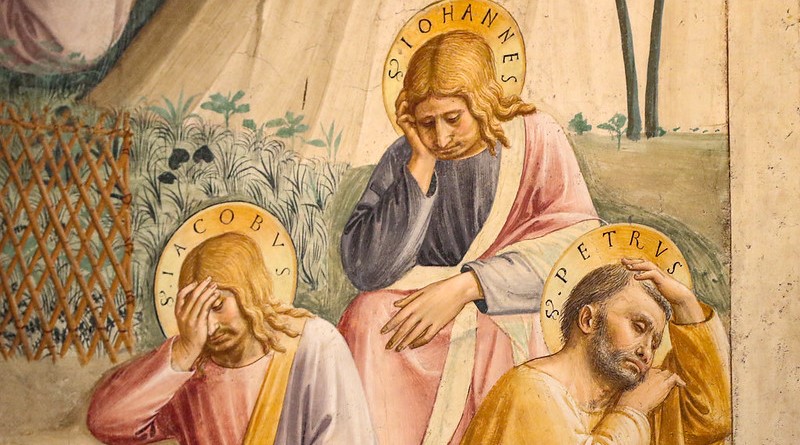“Josh and the Big Wall!” was one of my favorite episodes of VeggieTales. I was always frustrated with the beginning, however, when Bob the Tomato explained that the Israelites would have already gotten into the Promised Land if only they had listened to God.
When I was first learning these Biblical stories as a kid I fell in love with God, easily convinced of his love by his mighty wonders. Thus, it made no sense to me that they would disobey God, especially so soon after he had saved them from the Egyptians. “If I had been there,” I thought to myself, “If I had seen what they had seen, then I would have . . .” But the truth is, I myself was beginning to grumble in the desert.
Many years later, when I was a freshman in college, I felt called to pray but found that the Our Father was the only prayer I remembered; I just repeated it over and over again. What had happened to me?
I had forgotten God’s wonders of old. I had forgotten the Lord’s words of life. I had forgotten his goodness. I had forgotten the truth entrusted to the Church. I had forgotten all that the Lord had done for me. I found that I had turned away from my childhood faith. Forgetfulness is a tricky thing. It seems involuntary (at least it almost always seems so when we are the ones forgetting), but forgetfulness is certainly not blameless. It is an excuse, but never a satisfactory one. “Forgetting” to do my chores was never left unpunished.
And rightfully so. Forgetfulness is not spontaneous. It is gradual and secretive. I always found it easy to forget my chores when I turned myself away from my mother’s call upstairs and towards whatever game I was playing, show I was watching, or book I was reading. Certainly, Eve made it much easier to forget the divine command when she was thinking all about how “the tree was good for food, and that it was a delight to the eyes . . .” (Gen 3:6). And the Israelites, turning to their perceived misfortunes, quickly forgot the Lord’s mighty deeds and that their “God is a God who saves” (Ps 68:21).
Sin makes us forget. Sin is a “turning away” that makes it easy to forget. And it has a compounding effect, as the only way we can justify our sin to ourselves is through a forgetfulness of God—such as forgetting his presence, his love, or that he is our final end. If we were able to forget that there is a God, then we would not be reminded of the eternal consequences of our actions and we would be able to live an easy life. Men “suppress the truth by their wickedness” (Rom 1:18). And with the truth suppressed, sin is easy.
Thus, the awareness of God is essential: “there is no practice more vital to our spiritual growth; for the presence of God is indeed the very sunlight of the soul” (Anselm Moynihan, O.P., The Presence of God, 3). The saints teach us about this all-important awareness. Saint Peter is the perfect example: he sinks when he takes his eyes off Jesus (Matt 14:30). But then, after his denial, it is when the Lord “turned and looked at Peter” that Peter remembered (Luke 22:61). To be aware of God brings about the realization that he is steadily gazing upon us; that he is waiting, longing, desiring with great desire for the love only our hearts can give him. Cultivating awareness of God is nothing less than preparing for heaven. It is possible for man to forget anything if he allows his mind to go elsewhere. But you will find that it is always possible to remember again. “If you turn to him with all your heart and with all your soul . . . then he will turn to you and will not hide his face from you” (Tob 13:6).
✠
Photo by Fr. Lawrence Lew, O.P. (used with permission)







